Key points in the design and production process of chemical fiber wool-like fabrics
Wool fabric has always been a high-end and popular fabric in the fabric market due to its good looseness, elasticity, soft feel, fullness, smoothness, comfort, and bright color. However, some shortcomings of wool fabrics, such as poor resistance to pilling, only dry cleaning but not machine washing, and harsh storage conditions, also make it difficult for consumers to accept. With the progress of human society and the acceleration of the pace of life, people are in urgent need of a work clothing fabric with high quality, casual wear, and easy cleaning and storage. In addition, the world wool market is relatively short of supply, so chemical fiber imitation wool products have emerged. The development of this type of fabric has added a large number of designs and colors to woolen fabrics, and also greatly reduced the cost of fabrics. Wool-like products are suitable for the needs of all consumer levels and have great market potential.
1. The structure and properties of wool
Amino acids, which contain both amino acids with dicarboxyl groups (for example, wool is a natural protein fiber, and its components are polyglutamic acid and aspartic acid), and amino acids with dicarboxyl groups. There are diamino amino acids (such as arginine) and amino acids with hydroxyl groups (such as threonine), so it can be colored with both cationic dyes and acidic dyes. In addition, wool can produce various forms of lateral connections and surface scales, so it has a unique milling effect. The cross-section of wool is composed of different positive and negative cortices, so it can produce permanent three-dimensional curls, giving the fabric a full look and good feel.
2. Progress in chemical fiber wool-like technology
“Chemical fiber wool-like technology” has been developing vigorously since the 1980s, and has achieved good results so far.
The research initially started by imitating the morphological structure of wool fibers; later, the groove effect of wool scales was simulated by surface etching of polyester staple fibers; the British Courtaulds Company used surface wrinkles of polyacrylonitrile fibers to Simulate the difference in forward and reverse friction of wool scales.
But these research methods did not achieve the expected results, and the products were relatively rough.
In recent years, with the continuous advancement of textured spinning technology, multi-variable textured polyester filament, as a new type of wool-like filament, has made breakthrough progress in wool-like performance. It overcomes the extremely strong weakness of polyester filament fabric, has a soft and soft finish, and has good compression deformation ability, tensile deformation ability and good resilience. It feels full and smooth, and has excellent wearing properties.
3. Design of main structural parameters of pure chemical fiber wool-like fabric
(1) Selection of raw materials
To achieve chemical fiber wool-like fabrics, raw material selection and development are crucial. In the early years, asymmetric coagulation, lamination spinning and other technologies were developed for imitation wool. With the introduction of deformation technology, especially air deformation technology, chemical fiber filament imitation wool has also entered the production field. However, chemical fiber staple fiber is still used as the main raw material for imitation wool.
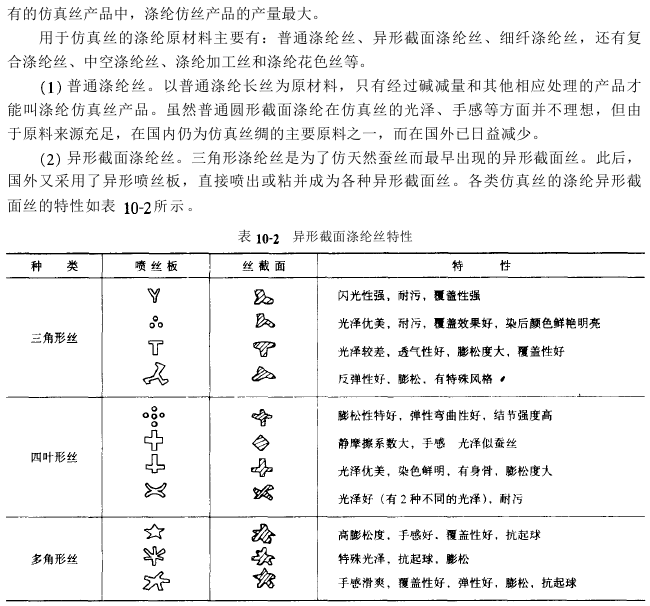
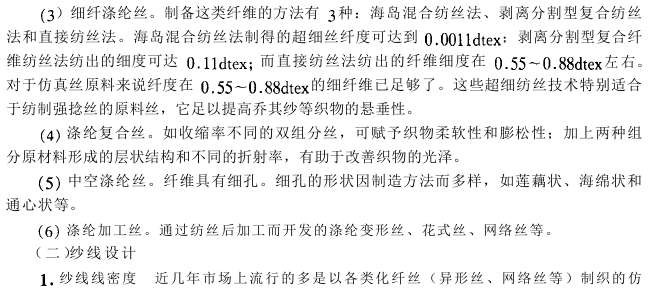
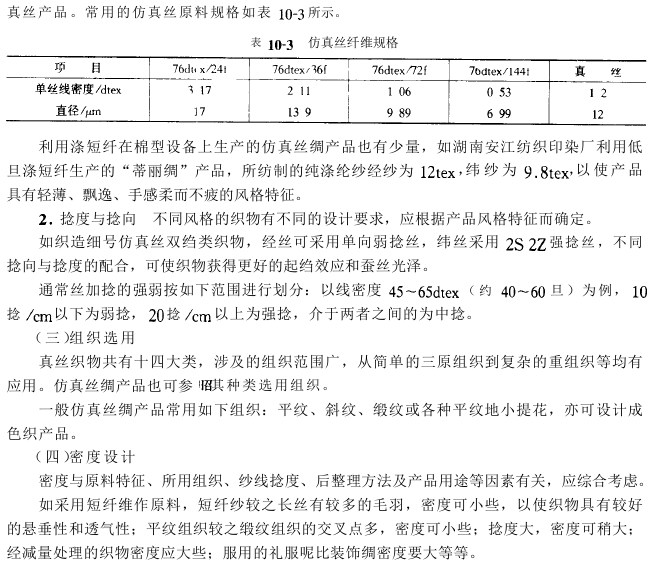
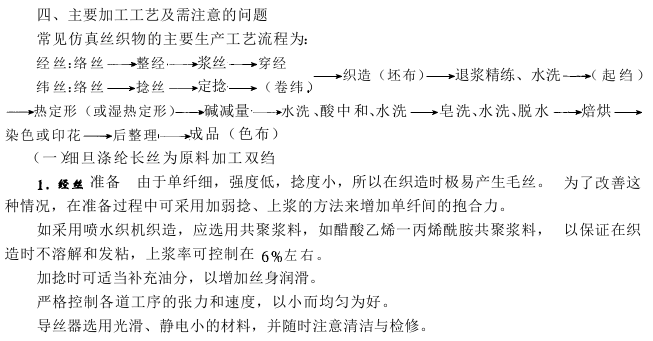
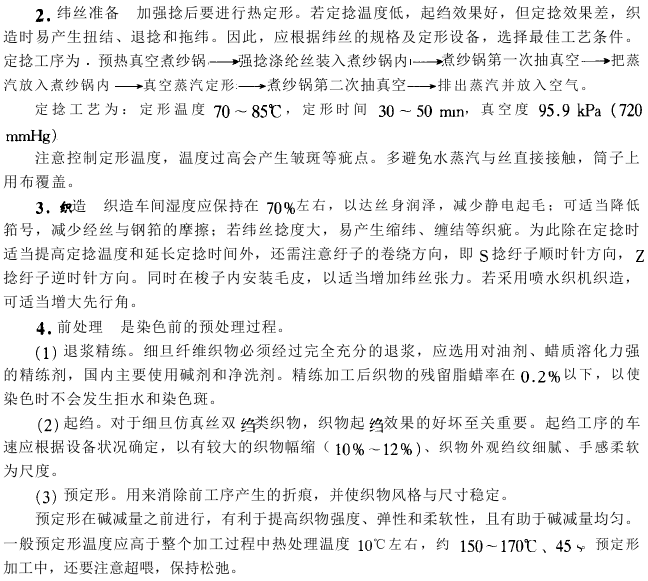
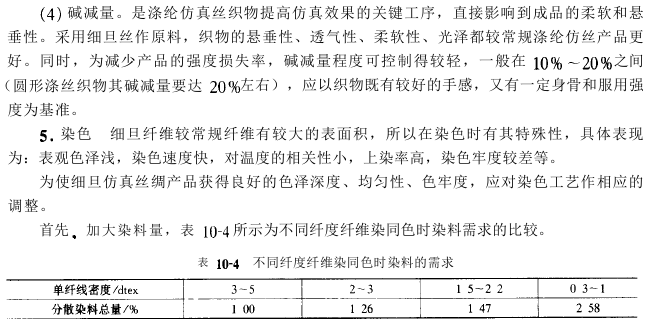
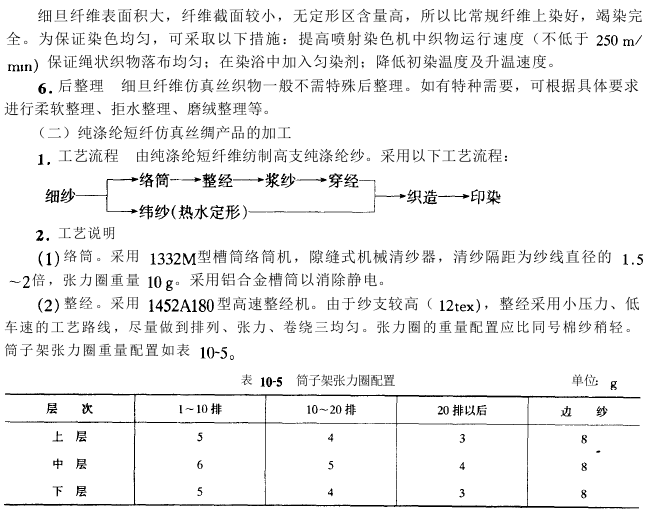

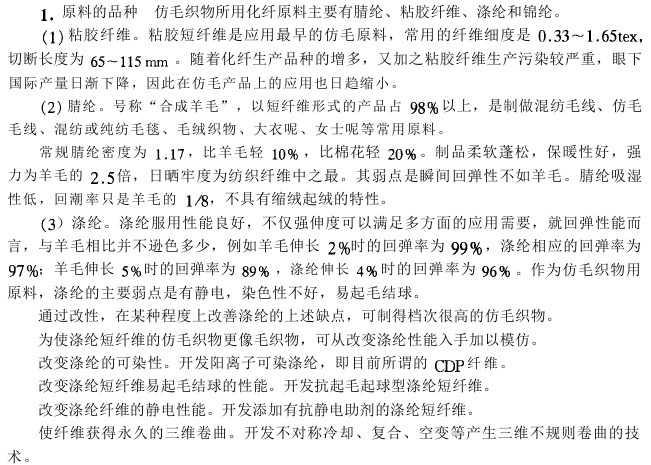
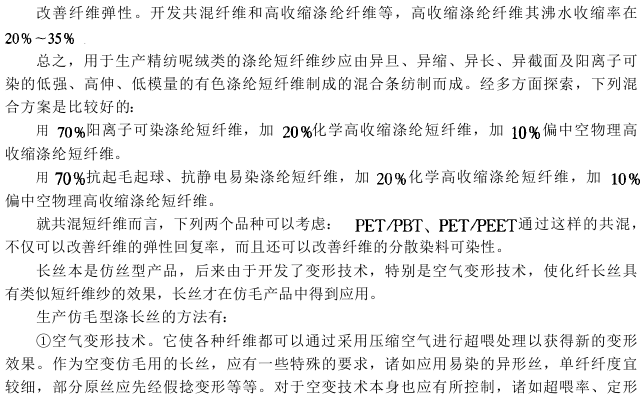
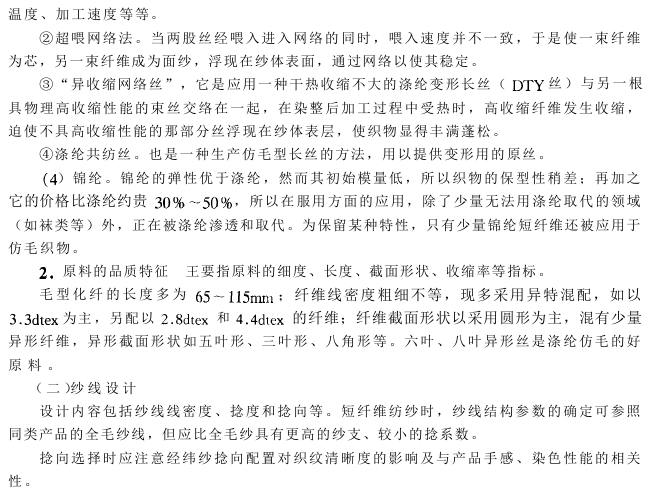
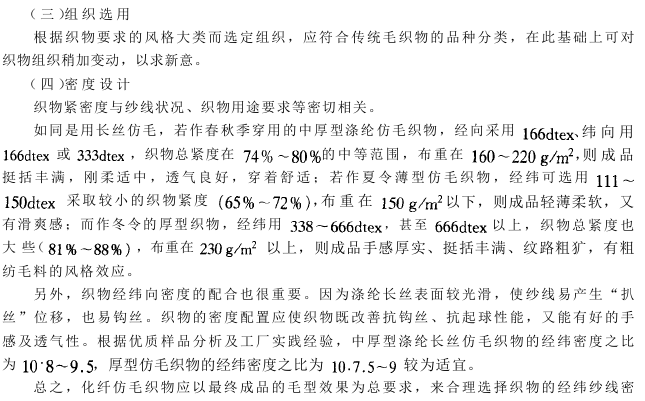

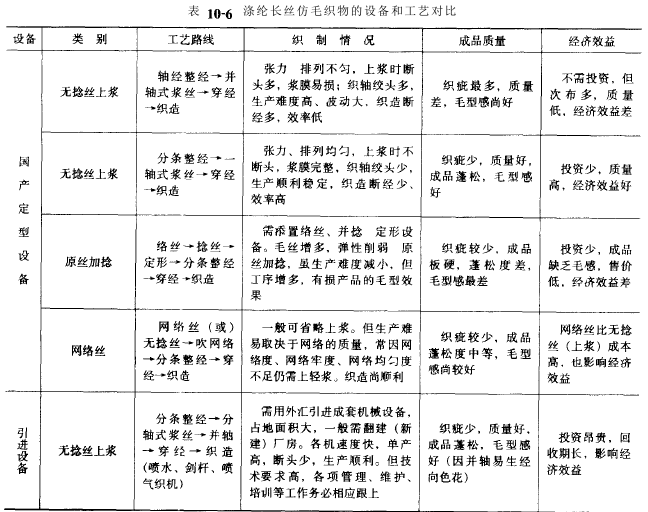
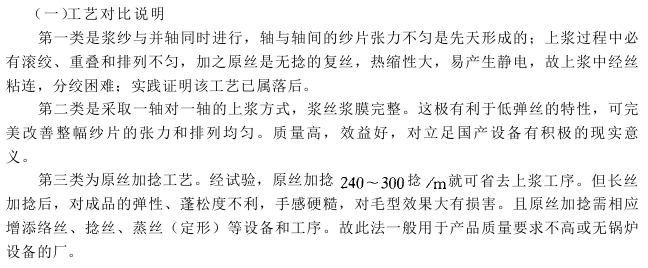
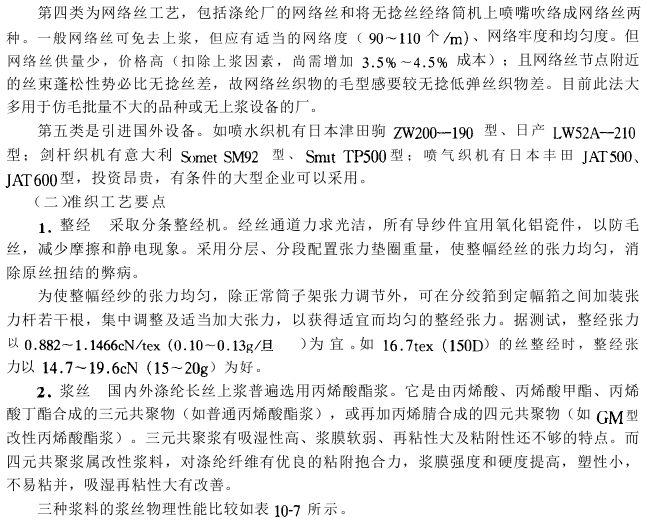
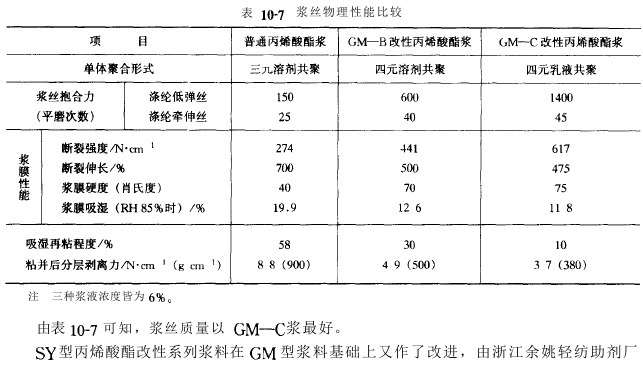
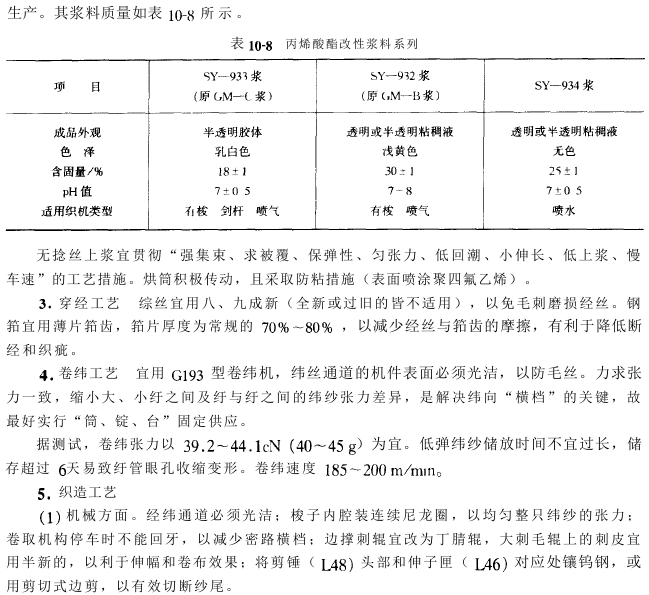
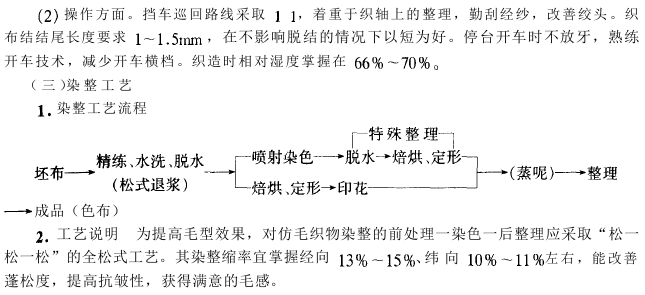
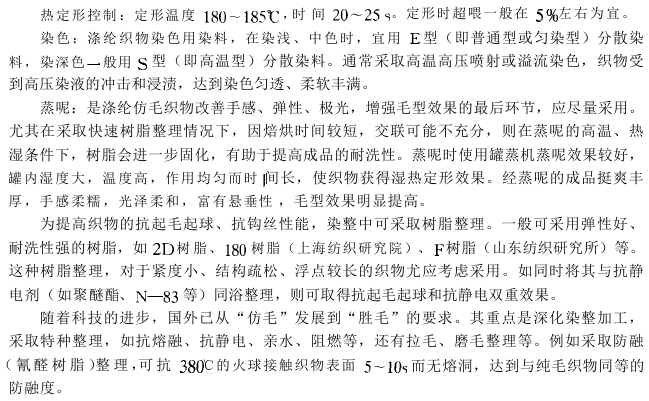
AAANHJJGHSFW





